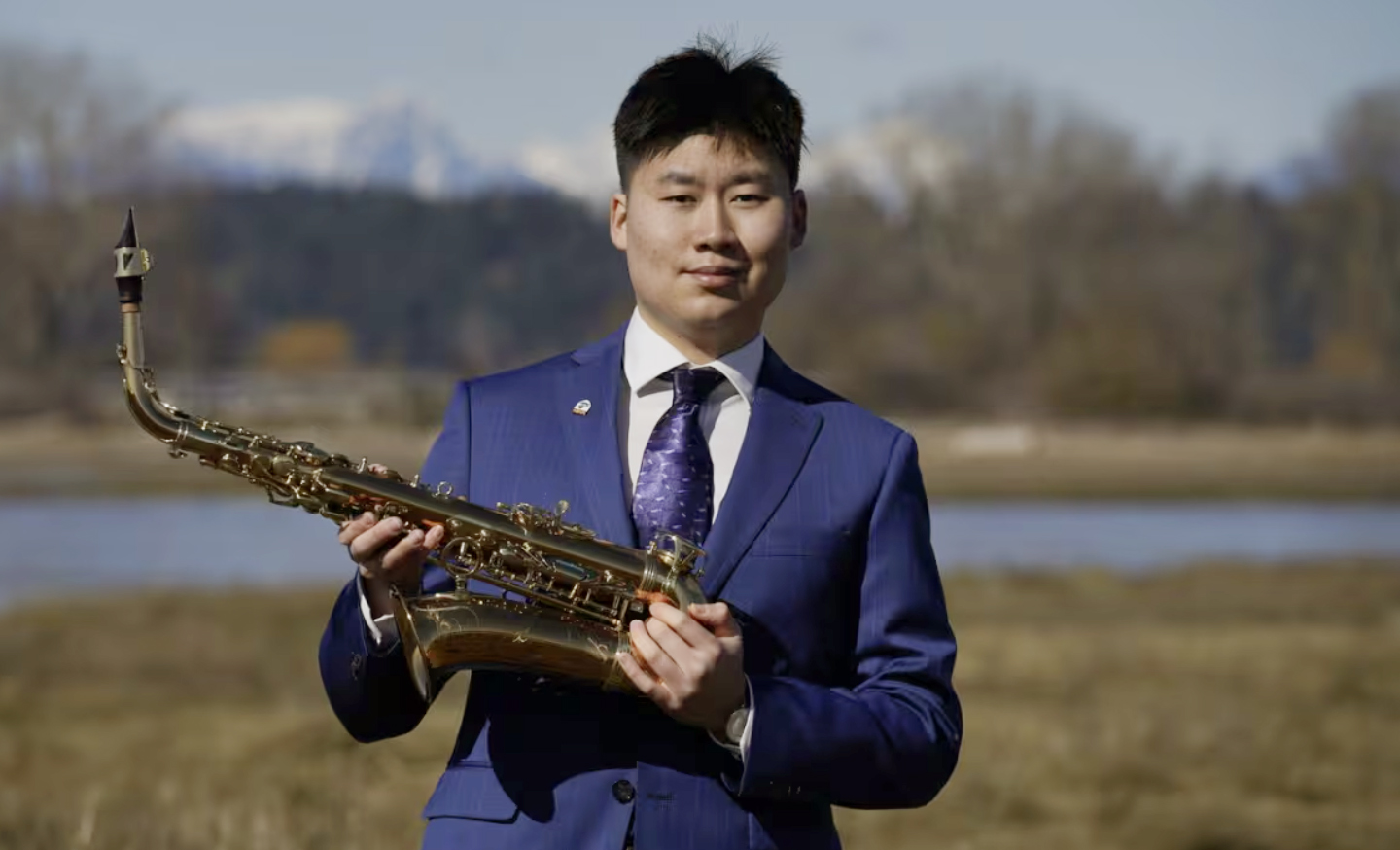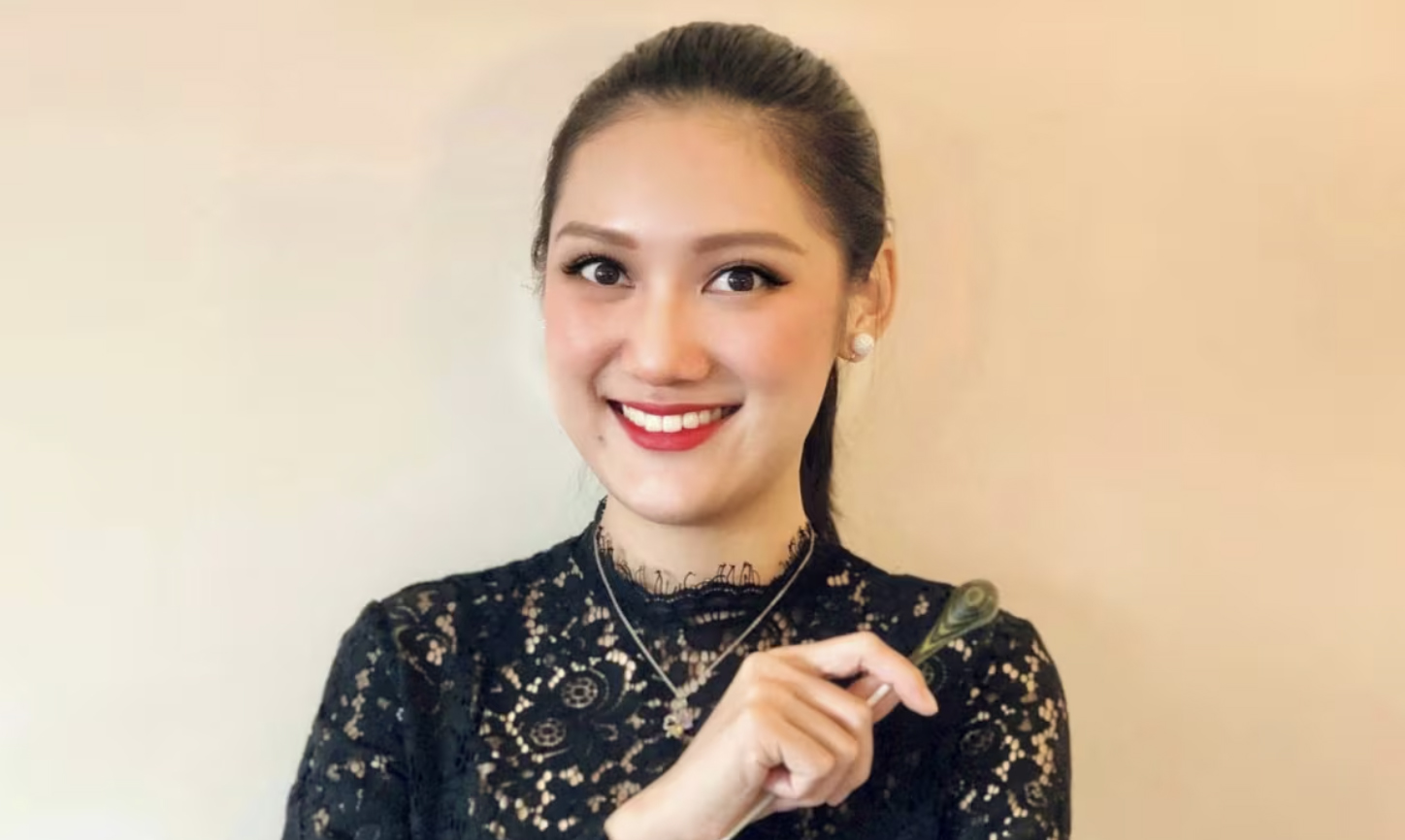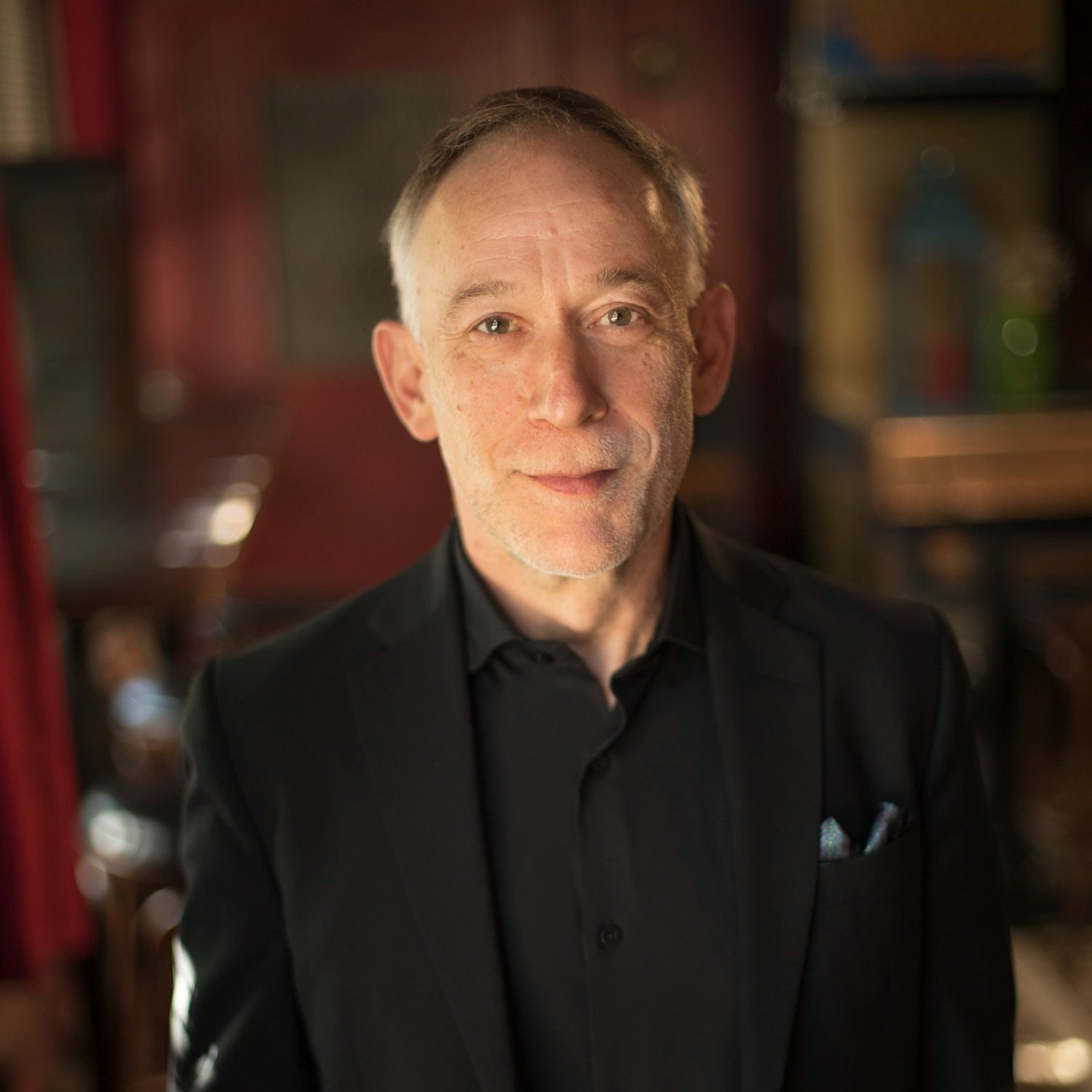The UBC School of Music is thrilled to introduce Associate Professor Dr. Leigh VanHandel, Chair of the Music Theory Division. We caught up with Dr. VanHandel to discuss her music theory origin story, what excites her most about teaching, and her involvement with roller derby!
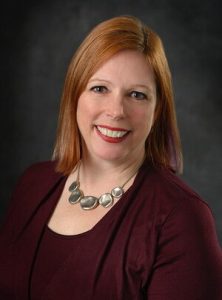

Dr. Leigh VanHandel
Where did you come from and what brought you to the UBC School of Music?
I grew up in upstate New York, in a town called Endicott. I moved around a lot as I completed my university degrees and started teaching, but most recently I was at Michigan State University from 2005-2020.
I couldn’t pass up the opportunity to come work at UBC with the incredible colleagues and students here. I started in the Fall of 2020, in the middle of COVID and online instruction, so it was a bit of a rough start! But since then, I’ve loved learning more about the students and faculty at UBC and discovering the opportunities available.
What are your areas of research, and how did you become a music theorist?
I always say that my research areas are music theory pedagogy, music cognition, rhythm and meter, music and language, computer-assisted research, and how those things all relate to one another. I vividly remember the moment I realized how all of my interests fit together and that I could make a career out of it!
The short version of my theory origin story comes down to being fortunate enough to have incredible mentors at multiple stages of my educational journey. The longer version is this: When I was an undergraduate music education major, I had a terrible experience with an elementary-level field teaching assignment, which made me question whether I was emotionally strong enough to be a music teacher. I went to talk to my Music Ed advisor, but they were on leave that term and I’d temporarily been assigned to a music theory professor I’d never met.
While I sat in her office having an existential crisis, she looked at my transcript and asked me why I was enrolled in upper-level theory courses that weren’t required for my education degree. I responded that I thought they sounded like fun; she asked “And are they fun?” When I said that I loved the theory classes, she gently pointed out that I might consider doing a degree in music theory—and that a lot of the classes I’d already taken, including the classes I took for “fun,” would count towards that degree! I remember asking her “Okay, but what would I do with that degree?”, to which she gestured around her and laughed, “How do you think I got here?” That professor became a lifelong mentor and friend, and I joke with her that it’s her fault that I’m a music theorist.
What inspires you to teach?
I love the “A-ha!” moments in the classroom when a student, regardless of level, is able to make the connection between the work they do in the classroom and the work they do in the practice room, ensembles, or studio class. It’s the best feeling when I see the light bulb turn on over their heads when things click. And it’s so rewarding to hear from former students that they used something they learned in one of my classes, or that something we talked about individually helped them in some way. I learn just as much from my students as they do from me, and I think that’s part of it as well.
“I love the 'A-ha!' moments in the classroom when a student, regardless of level, is able to make the connection between the work they do in the classroom and the work they do in the practice room, ensembles, or studio class.”
What are you most passionate about as a music theorist?
I’m passionate about helping students see how music theory is important to their lives as a musician, whatever type of musician they are. Music theory has a bad reputation for being a hard class, or a “weed-out” class, and one of my goals is to get students to believe that music theory is as cool as I think it is. A lot of that comes down to how music theory courses are taught, so I am a firm believer that a university needs to have their best teachers in the first-year theory classrooms, because that’s the make-or-break time. I love teaching those courses because I get to show them what music theory really is as a discipline.
I also think it’s really important that music theorists learn to communicate better about what we do. We tend to use a lot of specialized terms and jargon that can be off-putting or impenetrable to others—even if they have musical training! In the last few years, there’s been a push towards “Public Music Theory,” which focuses on connecting with communities both inside and outside of academia and engaging in conversations that help expand the field’s reach and knowledge base. That means that the discipline needs to be more connected to music making practices and practitioners outside of the academic traditions, and that we need to learn to communicate in a meaningful way with those traditions.
How do you see music theory changing in the next 10 years or so?
The discipline of music theory has changed rapidly in the last five years, and I’m positive it will continue to change in the next decade. When I started in the field, it was very focused on Western art music and analytic techniques that prioritized pitch structures over everything else. As theorists who have grown up as 21st century musicians enter the discipline, their diverse interests and backgrounds are opening music theory to ideas and methodologies that center music other than Western tonal music. Music performance degrees have been limited to students who sing or play traditional physical instruments, but now there is an entire generation of musicians who are making incredible music with the computer as their primary instrument. This has affected not only what we teach, but how we teach it so that it is relevant to the 21st century musician. As someone with an interest in pedagogy, it’s fascinating to watch the discipline change so quickly.
“Music performance degrees have been limited to students who sing or play traditional physical instruments, but now there is an entire generation of musicians who are making incredible music with the computer as their primary instrument.”
What advice do you have for students pursuing a career in music theory? What is it that you wish someone had told you?
Pursuing a career in music theory is more challenging than when I did it; you’re expected to be an expert in a lot more things and the academic job market has suffered because of budget cutbacks and COVID. My advice for students considering graduate school in music theory is for them to make sure that it’s something they love and want to dedicate a good portion of their lives to, not just something they’re doing because they don’t know what comes next for them. I also advise students to avoid going into debt for graduate school; I know too many people who have emerged from graduate school with a terrifying loan balance.
I wish someone had told me that it’s a really good idea to develop both soft and hard skills that can be useful either in or outside of academia — things like programming languages, using specialized software packages, how to manage people and projects, and how to write for grant applications or for public consumption are all desirable job skills that nobody teaches you in graduate school. Transferable skills like that are also very helpful if you decide to take a job outside of academia!
What music are you listening to and reading these days?
This is something I didn’t feel comfortable telling my music colleagues for a long time: I primarily listen to popular music outside of the classroom! I’m a big fan of punk and pop-punk music, as well as what Spotify would refer to as “Indie” artists. I played bass guitar in a band in Michigan until making the move to Vancouver; we weren’t very good, but it was so much fun!
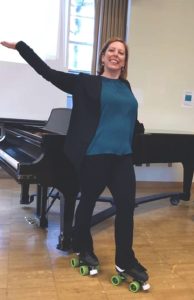

Dr. Leigh VanHandel
Recently I’ve been listening to a lot of music-focused podcasts like 60 Songs That Explain the 90s or Bandsplain to learn how they communicate about music with a general audience, as well as podcasts like Radiolab or Hidden Brain because they incorporate science, history, music, and the human experience into incredible storytelling.
I am also trying to broaden and diversify my listening, so right now I’m listening to a lot of contemporary popular music from around the world, as well as exploring the music of other cultures and traditions. One of my favourite things about my job is that I get to keep listening to new music, get excited about it, learn about it, and then get other people excited about it!
“One thing that is probably pretty unusual about me is that I officiate roller derby as a hobby”
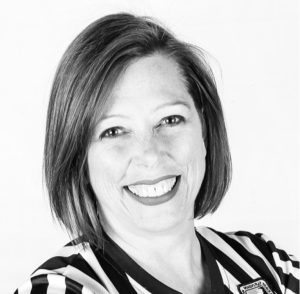

Photo: Nicole Cottom
Tell me something surprising about you.
One thing that is probably pretty unusual about me is that I officiate roller derby as a hobby. One of the reasons I love roller derby is that it is an incredibly inclusive sport that celebrates teamwork and athleticism regardless of shape, size, gender expression, or age. I played roller derby for five years in Michigan, and then switched into officiating (largely because officiating was less dangerous than having women 15 years younger than me trying to knock me down all the time).
I’ve been officiating roller derby for about eight years, and I’ve traveled all over North America for tournaments, officiated games between some of the best roller derby teams in the world, and taught clinics for new officials.
While roller derby and music theory seem like they’re pretty different, I’ve found some unexpected connections between them. Both require a lot of practice to become good, and both require continual practice to further develop skills and knowledge to become great. Additionally, they both provide me with opportunities to teach others about something that can be challenging, but can also be made fun and accessible, which lets me give back to the community.
By Dina MacDougall
Marketing & Communications Strategist
